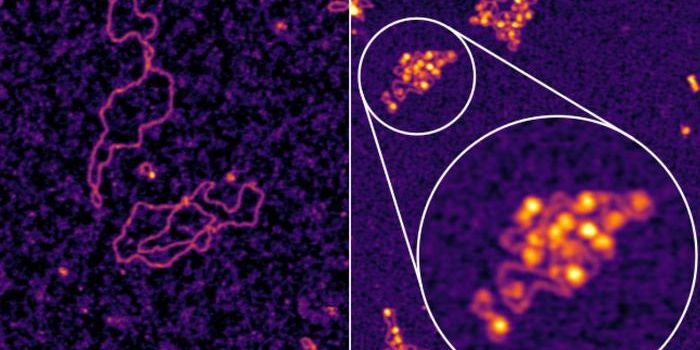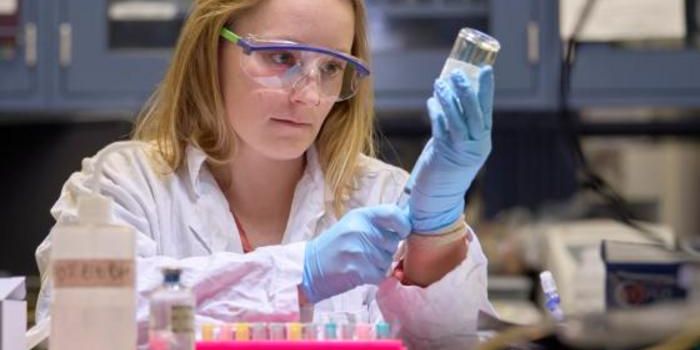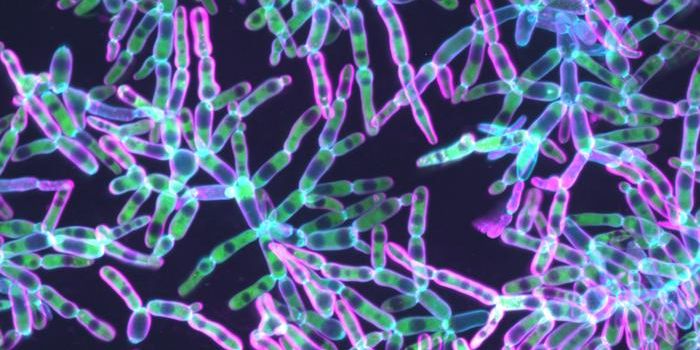A Gut Microbe Metabolite Makes Mice More Anxious
Many different research studies from groups all over the world have now provided indisputable evidence of the importance of the gut microbiome to human health. Scientists have begun to dissect the complex relationship between humans and the many microbes in our gastrointestinal tract, and in some cases, specific bacteria -or molecules they produce- have been linked to health conditions or characteristics. Now, researchers have used a mouse model to show that a metabolite generated by gut bacteria can migrate to the brain, and when they do, anxious behaviors increase in those mice. The findings have been reported in Nature.
A variety of diseases have been linked to the microbiome, including some mental disorders. With animal models, scientists have determined that the nervous system is also impacted by gut bacteria. But proving that gut bacteria actually cause changes in the brain, and are not simply associated with those changes, has been challenging, noted first study author Brittany Needham, PhD. Needham is a postdoctoral researcher the lab of Sarkis Mazmanian, the Luis B. and Nelly Soux Professor of Microbiology at Caltech.
There, scientists wanted to know what molecules were moving "between the gut and the brain, and how these signals may lead to changes in behavior," said Needham. In this study, the researchers focused on called 4-ethylphenyl sulfate, or 4EPS, which is generated by gut microbes and released into the bloodstream in humans and mice.
Previous work by the Mazmanian lab has shown that in a mouse model of dysfunctional neurodevelopment, levels of 4EPS are higher than normal. After screening samples from 231 people, the researchers also found that in children on the autism spectrum, 4EPS levels are around seven times higher in children on the autism spectrum than in neurotypical children.
Anxious mice are less likely to explore their surroundings, and will hide in corners more than mice that are not exhibiting anxious behaviors. In this research, mice were colonized with bacteria; one group was exposed to a strain that was genetically designed to produce 4EPS, while another group of mice was colonized with bacteria that was the same in every way, except it could not produce 4EPS.
The behavior of the mice was then monitored. The researchers observed that mice carrying bacteria that generated 4EPS were more likely to hide and spent less time exploring than the other mice; the mice with 4EPS in circulation were more anxious. Brain scans confirmed that activity was increased in regions that are linked to fear and anxiety in the mice with 4EPS-producing bacteria.
There were also some structural changes in the brains of anxious mice; their oligodendrocytes were abnormal. The myelin, a fatty sheath surrounding many neurons, suffers because of that dysfunction since oligodendrocytes produce myelin. When the researchers treated these mice with a drug that promotes myelin production by oligodendrocytes, anxiety was reduced, and myelin levels were found to be restored.
Additional work published in Nature Medicine showed that if a drug is used to lower 4EPS levels in mice, anxious behaviors are also reduced. A preliminary clinical trial in people, while small, has confirmed those findings as well.
"It's an exciting proof-of-concept finding that a specific microbial metabolite alters the activity of brain cells and complex behaviors in mice, but how this is happening remains unknown," noted Mazmanian.
More research is planned to learn more about how 4EPS is interacting with cells and other proteins, and elucidate its mechanisms. A larger clinical trial is also underway.
Sources: California Institute of Technology (Caltech), Nature Medicine, Nature










